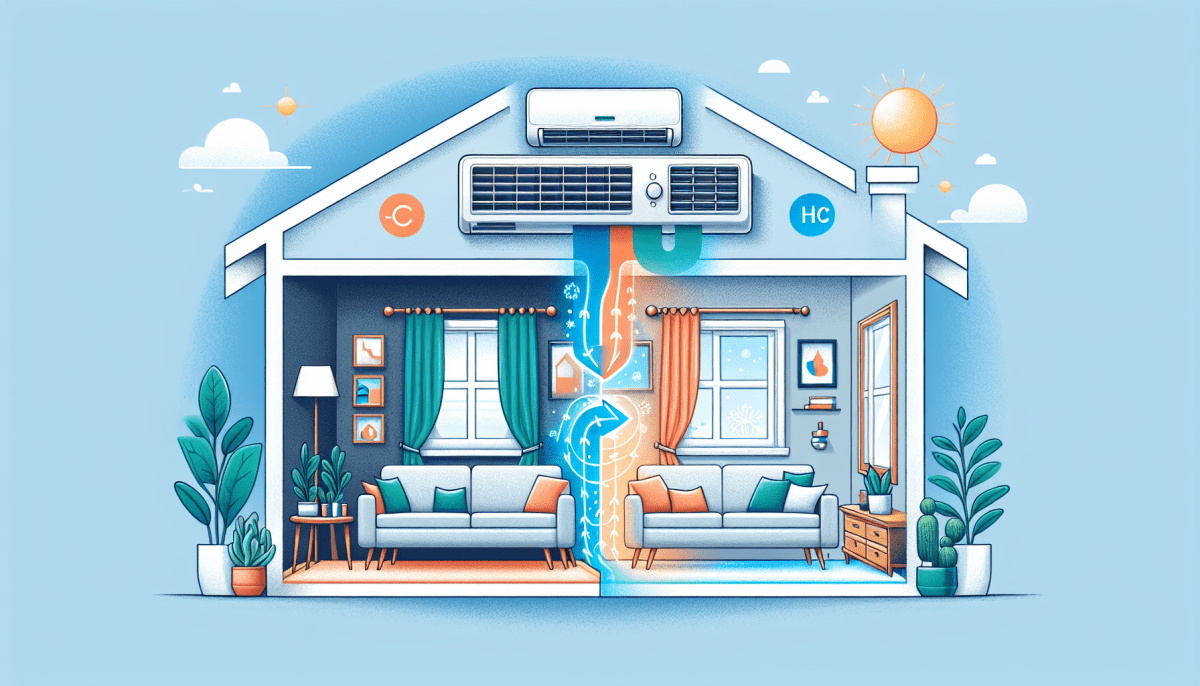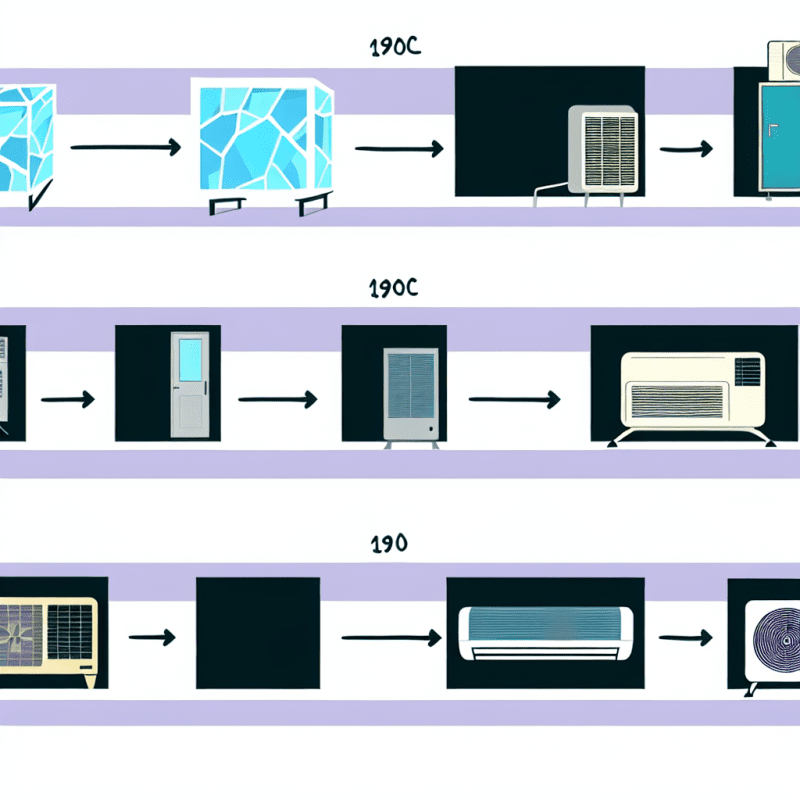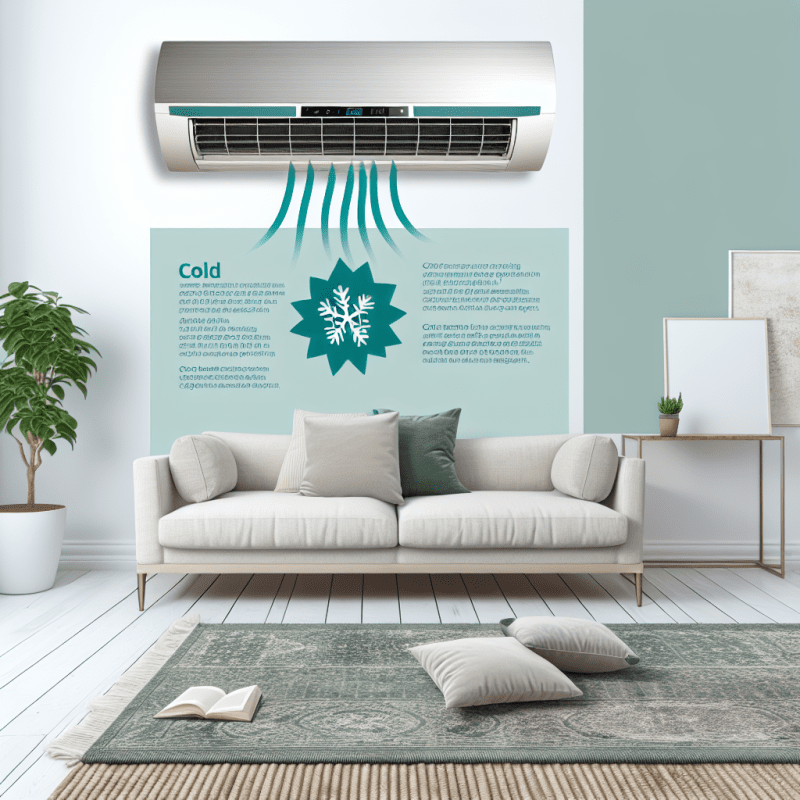In the efficiency battle between window AC units and HVAC systems, there are pros and cons to consider. Window AC units, also known as room air conditioners, are compact and affordable, making them a popular choice for small spaces. They are easy to install and typically require only a standard electrical outlet. However, their efficiency is limited as they can only cool a small area and are not as effective for larger rooms or multiple rooms.
On the other hand, HVAC systems, which stands for heating, ventilation, and air conditioning, offer a more comprehensive and efficient cooling solution for larger spaces. HVAC systems are centralized units that can cool multiple rooms simultaneously. They remove hot air from the entire house and distribute cool air through ductwork. The efficiency of HVAC systems depends on factors such as the size of the house, insulation, and the energy-efficiency of the system itself.
When it comes to energy efficiency, HVAC systems have the advantage over window AC units. HVAC systems are designed to cool an entire house, and energy efficiency ratings such as SEER (Seasonal Energy Efficiency Ratio) help consumers determine how efficiently they use energy. Window AC units, though convenient, are known to be less energy-efficient as they cool a limited space. As a result, HVAC systems may lead to long-term energy savings and lower utility bills.
Ultimately, the choice between window AC units and HVAC systems boils down to the size of the space and cooling needs. While window AC units are suitable for individual rooms or small areas, HVAC systems are more appropriate for cooling larger spaces or multiple rooms. Consider factors like cost, energy efficiency, and comfort requirements before making a decision, as both options have their strengths and limitations.
Installation and Maintenance: Simplifying Your Cooling Choice
Installing and maintaining a cooling system is an essential part of ensuring comfort during hot summer days. When comparing window air conditioners (AC) and heating, ventilation, and air conditioning (HVAC) systems, it's crucial to consider factors such as ease of installation and ongoing maintenance requirements.
Window AC: Pros and Cons
One of the main advantages of window AC units is their simplicity of installation. These systems are designed to fit directly into a window frame or a custom opening, which means they can be easily installed or removed as needed. Additionally, window AC units generally require minimal modification to the existing structure, making them a great option for renters or those who don't want to invest in major renovations. However, it's important to note that window AC units can obstruct the view from the window and also generate some noise.
HVAC Systems: Pros and Cons
On the other hand, HVAC systems offer a more comprehensive cooling solution that can also provide heating during colder months. These systems are typically installed by professionals and require more extensive modification to the property, including ductwork and vent installation. While the initial installation costs can be higher, HVAC systems offer more effective climate control for larger spaces and provide a consistent temperature throughout the entire property. Furthermore, HVAC systems are generally quieter compared to window AC units and don't obstruct any window views.
Maintenance Considerations
When it comes to maintenance, both window AC units and HVAC systems require regular upkeep to ensure optimal performance and longevity. Window AC units generally require more frequent cleaning of air filters and condenser coils to prevent the accumulation of dust and debris. On the other hand, HVAC systems typically require professional maintenance as they involve complex components, such as compressors, fans, and refrigerant systems. Regular inspections by HVAC technicians are essential to identify and address any potential issues before they become major problems.
Cost Considerations: Window AC or HVAC - Which is Cheaper?
When it comes to cooling your home, the cost is certainly an important factor to consider. Both window AC units and HVAC systems have their own cost implications, and it's essential to evaluate which option is cheaper in the long run.
Window AC units are known for their affordability and low initial cost. They are relatively inexpensive to purchase and install, making them an attractive choice for those on a tight budget. Additionally, since window AC units are designed to cool a single room or a specific area, they use less energy compared to HVAC systems. This means that operating costs for window AC units tend to be lower, resulting in potential savings on monthly energy bills.
On the other hand, HVAC systems offer broader cooling capabilities as they can cool the entire house instead of just a single room. Despite their higher upfront costs, HVAC systems are known for their efficiency, especially when it comes to energy consumption. The ability to control and regulate temperatures across the entire house can result in more consistent cooling, potentially reducing the overall energy usage. However, it's important to note that HVAC systems require professional installation and regular maintenance, which could add to the long-term costs.
Climate Control and Flexibility: The Pros and Cons
When it comes to choosing the right cooling system for your home or office, two popular options are window air conditioning units (AC) and heating, ventilation, and air conditioning (HVAC) systems. Both have their own set of pros and cons that can help guide your decision.
Window AC Pros: One of the major advantages of window AC units is their affordability and easy installation. These compact units can effectively cool a single room without the need for extensive ductwork or professional installation. Additionally, they offer flexibility in terms of cooling specific areas only when needed, which can help save energy and lower utility bills. Window AC units are easily accessible for maintenance and repair purposes, making them a convenient choice.
Window AC Cons: Despite their advantages, window AC units also have limitations. Since they are designed for cooling individual rooms, they may not be suitable for effectively cooling larger spaces. Furthermore, they can be noisy and may obstruct natural light and outdoor views when installed. Window units also lack the heating capabilities that HVAC systems provide, which can be a drawback in colder climates.
HVAC Pros: HVAC systems offer comprehensive climate control as they integrate heating, cooling, and ventilation components. This ensures a comfortable indoor environment regardless of the season. They are capable of cooling large areas and maintaining a consistent temperature throughout the space. With advanced thermostats, you can program specific temperature settings for different times of the day, enhancing energy efficiency. Additionally, HVAC systems filter and circulate air, improving indoor air quality.
HVAC Cons: The main drawback of HVAC systems lies in their initial cost and complexity of installation. Compared to window AC units, HVAC systems are more expensive and require professional installation involving ductwork throughout the structure. These systems also demand regular maintenance to ensure optimal performance, which may add to the overall cost. Moreover, the size and space requirements of HVAC units may limit their installation possibilities in certain scenarios.



